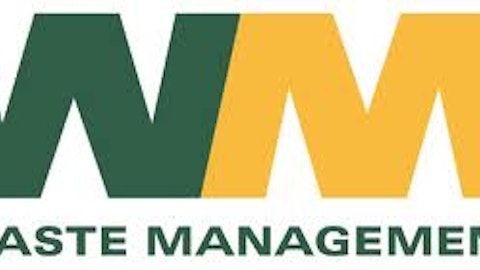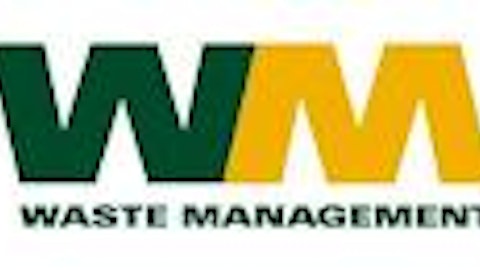With trash volumes flat and the ability to raise prices almost nonexistent, waste service providers have faced an uphill climb during the past couple of years. Unfortunately, the fourth-quarter earnings Republic Services, Inc. (NYSE:RSG), one of the industry’s Top 3 players, reported on Feb. 7 show that little has really changed over the past several months — and little improvement is expected in early 2013.
RSG’s results, and why they matter
Since the onset of the Great Recession, a slowdown in housing and commercial construction, weak retail spending, and trends like diminished newspaper circulation and the use of less packaging in most consumer goods have all contributed to the waste sector’s woes. More recently, weak recycling commodity pricing has also hurt the industry.

With Republic being the first of the industry giants to report, much of what it said in its announcement and follow-up conference call will be instructive to investors who watch the field. Waste Management, Inc. (NYSE:WM) , which together with Republic attracts about 40% of all U.S. spending on trash disposal and owns about two-thirds of the country’s landfills, reports Feb.14.
Waste Connections, Inc. (NYSE:WCN) is scheduled to report Feb. 20. It’s often treated like an afterthought to the two market leaders, even though it, too, has considerable market share in a field where established relationships with municipalities, lengthy contracts, and costly rolling stock create significant barriers for expansion.
Progressive Waste Solutions, a Canadian firm that serves about 25% of the U.S. and about 60% of its home country, and Paris-based Veolia Environnement Ve SA (ADR) (NYSE:VE), which offers services worldwide, comprise the remainder of the U.S. market, along with a number of regional firms.
During the previous period, both Republic and WM reported disappointing results and cut full-year 2012 guidance. WCN proved an outlier, reporting third-quarter net income and revenue above the Street’s expectations. Even so, the period marked the fifth straight quarter that its margins had contracted.
Tackling just that issue, WM and Republic have been restructuring to lower their costs. Nonetheless, analyst expectations were low going into Republic’s fourth-quarter earnings — and Republic proved that they weren’t quite low enough.
The good news
Republic did manage to offer a few slivers of good news. It revealed that Q4 core pricing was up 1.1% from the prior year, with increases in all business lines. This was slightly ahead of the 0.8% increase the company experienced for the full year, and in line with its own projections. Officials also said they believe the industry was beginning to emerge from the pricing “trough” it has been mired in since the economic downturn began.
Additionally, Republic said it expected 2013 sales growth of 2%-2.5%, core price improvement of 1%-1.5%, and adjusted per-share earnings of $1.86-$1.91, all better than 2012. This EPS guidance, however, was a little below what the company had offered in Q3.
Finally, the company noted that its recycling business continued to grow, with Q4 recycling facility tons up about 3.5% over the prior year. It also said “temporary roll off business hauls,” which relate to construction demolition, were up over 5% in Q4, although this is coming off a very low 2011 base.
The bad news
This is where the rubber really hit the road. Republic said volumes dropped 0.8% in the quarter and 1% for the full year, although it posted some improvement in commercial and industrial lines over the previous quarter. However, it projected “relatively flat” volumes in 2013 with little growth from Hurricane Sandy-related demolition and rebuilding. “We’re not heavily engaged in that part of the country,” management said.




